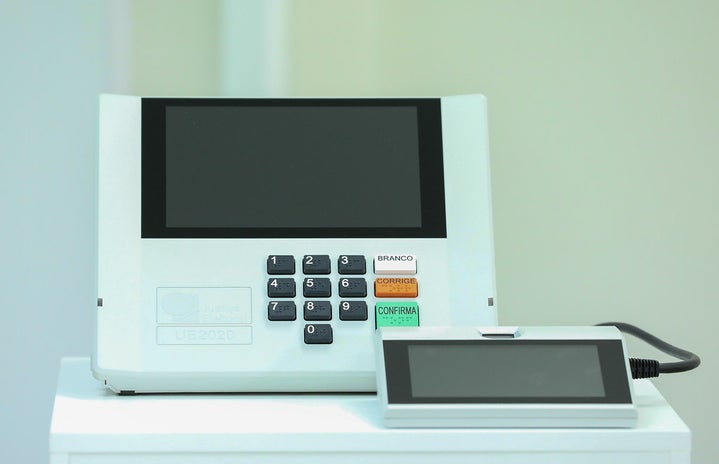What is political education anyway? Briefly and directly, it is the understanding of the Brazilian political system and the Federal Constitution. For political education to exist, it is necessary to provide citizens with a repertoire that allows them to understand the entire administrative process of a country.
According to the young affiliate of the New Party (Partido Novo, in free translation) Bruno Wallace, having political education is knowing the rules of the “game” – that is, knowing the procedures of the electoral system.
For him, it is fundamental to know the political dynamics and what creates them. Then, the voter becomes aware of the impact and consequences of his decisions.
When asked about the importance of political education in election years, Bruno reports: “By knowing the political rules, you can optimize your tools and thus form a position, choose your representatives, contribute and be more satisfied with the politics”.
Moreover, just as important as having a political education is the beginning of its formation. Wallace, the first deputy councilman in São José dos Campos (SP), states that, in his opinion, contact with political information is necessary since elementary school.
He claims: “it’s the moment when the individual is receiving the world and defining his values, that will build him as a person. It would be of utmost importance if lessons on citizenship, rights, and political procedures were included in elementary school.
Another issue involving the existence of a good political education in Brazil is the environment in which it grows and is maintained. Taking life in society as a basis, the individual is an agent of social transformation and everything he does is political.
For Bruno, the family can be a good mediator for the debate, but it can become something limited. That’s why he claims the importance of the school in opening this space for discussion.
“I think it is important to have student councils and other projects aimed at student representation. It’s fundamental to notice that they have a voice, not only in school but in all organizations, such as a church, sports club, among others,” says the New Party affiliate.
However, he says that this shouldn’t completely form people’s opinions. If this happens, those people will become more and more narrow-minded, adds. The problem mentioned by the political might be one of the causes of the strong polarization that Brazil is experiencing.
The lack of political education contributes a lot to polarization. I feel that the educational system in Brazil is flawed in that sense
The first deputy for councilman also alleges that nowadays, due to social networks, young people have very strong and fast access to information, something that was not a reality for previous generations. All political debates are on the internet, and the problem is that these debates become shallow, according to him.
Also, Bruno Wallace explains, from his point of view, the relationship between education, politics, and polarization: “The lack of political education contributes a lot to polarization. I feel that the educational system in Brazil is flawed in this sense. There is not a very strong incentive to study political science in our curriculum.
In Brazilian elections, there is a two-round system, in which, according to Bruno, “Theoretically, in the first round, your vote goes to the candidate you believe in the most, and then the two candidates with the most votes go to the second round. But in the current political scenario, the two extremes have been present since the first round, and they are fighting each other. This is not a debate that contributes to the construction of society and does not positively impact people’s lives”.
So, according to the interviewee, it is very important to have a good political education, not only in election years but also in other years. Transforming politics can only be possible if there is a good education.
———————–
The article above was edited by Julia Bonin.
Liked this type of content? Check Her Campus Cásper Líbero home page for more!



